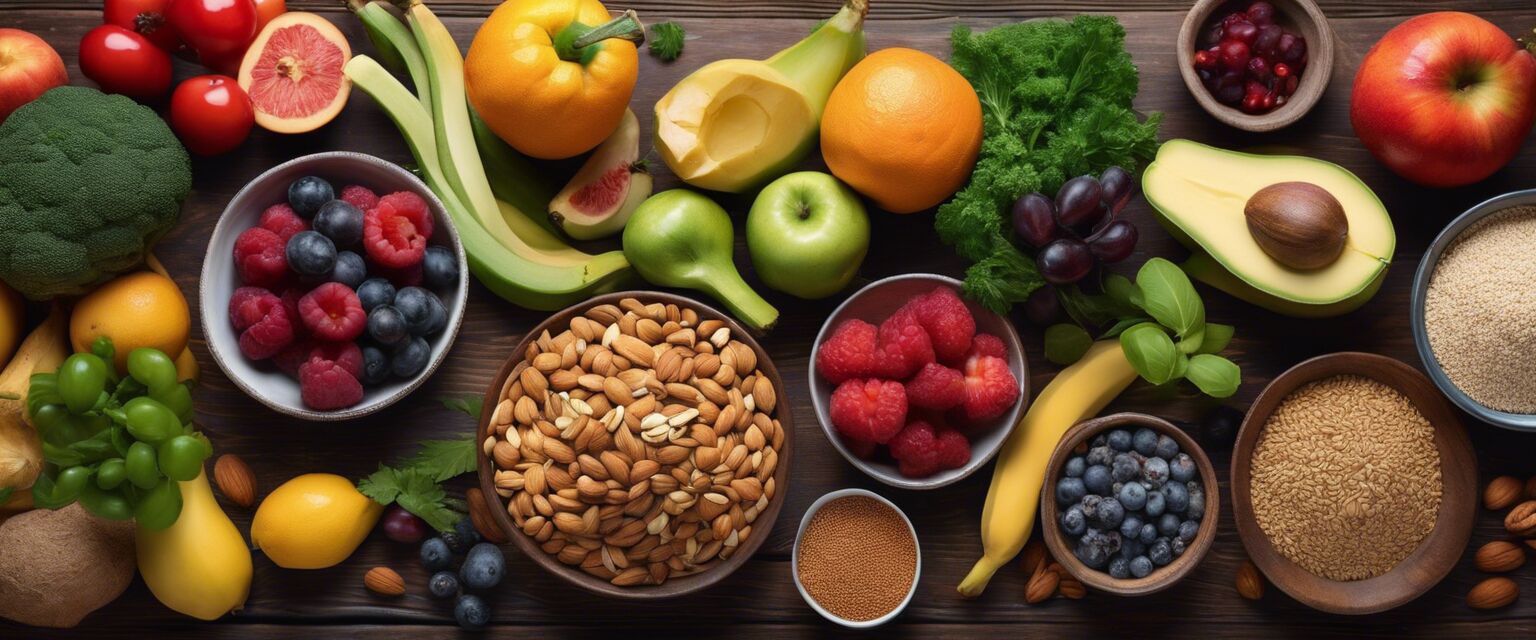
Nutrition
Key Takeaways
- Eating a balanced diet enhances overall health.
- Incorporate a variety of food groups into your meals.
- Plan your meals for better nutritional intake.
- Stay hydrated, as water is essential for health.
- Understand your personal nutritional needs.
Nourishing your body with the right foods is essential for maintaining optimal health. This guide offers advice and tips on how to create a balanced diet, maintain healthy eating habits, and implement nutrition plans that can positively affect your well-being. Understanding nutrition can be confusing, but it doesn't have to be. Letâs break down the basics.
Understanding Nutrition
Nutrition is the science of food and how it affects the body. It involves understanding the different nutrients essential for our health:
| Nutrient | Function | Sources |
|---|---|---|
| Carbohydrates | Primary source of energy | Whole grains, fruits, vegetables |
| Proteins | Build and repair tissues | Meat, beans, nuts, tofu |
| Fats | Energy source, supports cell growth | Oils, avocados, fish |
| Vitamins | Support various bodily functions | Fruits, vegetables, grains |
| Minerals | Important for bone health and other functions | Dairy, nuts, green leafy vegetables |
| Water | Essential for hydration and bodily functions | Water, fruits, and vegetables |
Benefits of a Balanced Diet
A balanced diet that includes the right amounts of different nutrients can lead to:
- Improved mood and mental well-being
- Better weight management
- Increased energy levels
- Enhanced immune system
- Reduced risk of chronic diseases
Creating a Nutrition Plan
Designing a nutrition plan involves understanding what you need and setting realistic goals. Here are some key components:
- Determine your caloric needs based on age, activity level, and health goals.
- Include a variety of food groups in your meals to cover all nutrient bases.
- Adjust portion sizes according to your physical activity and energy needs.
Meal Planning Tips
Tips for Beginners
- Keep a food diary to track what you eat.
- Prepare meals in advance to avoid unhealthy choices.
- Explore new recipes that include different food groups.
- Stay mindful while eating â enjoy your meals without distractions.

Hydration: The Forgotten Nutrient
Water plays a crucial role in overall health. Here are some reminders about staying hydrated:
- Aim for at least 8 cups of water a day.
- Keep a water bottle handy to encourage regular intake.
- Incorporate water-rich foods like fruits and vegetables into your diet.
Common Nutritional Myths
Many misconceptions surround nutrition, leading to poor dietary choices. Here are a few myths debunked:
| Myth | Truth |
|---|---|
| Carbs are bad for you. | Carbohydrates are essential for energy; it's the type that matters. |
| All fats are unhealthy. | Healthy fats are crucial for body functions. |
| Skipping meals aids in weight loss. | It can lead to overeating later and may not support overall health. |
| Vitamins can replace a poor diet. | Whole foods offer nutrients that supplements cannot provide. |
| Eating late at night causes weight gain. | It's the overall caloric intake and choices that matter, not meal timing. |

Maintaining Healthy Eating Habits
Here are ways to stick to your nutrition plan:
- Establish a routine by setting regular meal times.
- Find healthy snacks to keep you satisfied between meals.
- Share meals with friends as a way to stay motivated.
- Be flexible â allow yourself occasional treats to avoid feelings of deprivation.
Conclusion
Maintaining a balanced diet and being mindful of your nutrition can lead to a healthy, vibrant life. Remember to continually educate yourself, adapt your meals as your needs change, and enjoy the process of nourishing your body.
Pros
- Essential for overall health and well-being.
- Can improve mood and boost energy levels.
- Helps in disease prevention.
- Enhances cognitive function.
Cons
- Requires time to plan and prepare meals.
- Can be initially expensive to create a balanced diet.
- Challenging to stick to when eating out or on the go.
For more information on how to improve specific aspects of your nutrition, check out our other resources on Fitness & Nutrition, Personal Hygiene, Hair Care, Makeup, and Skincare.








